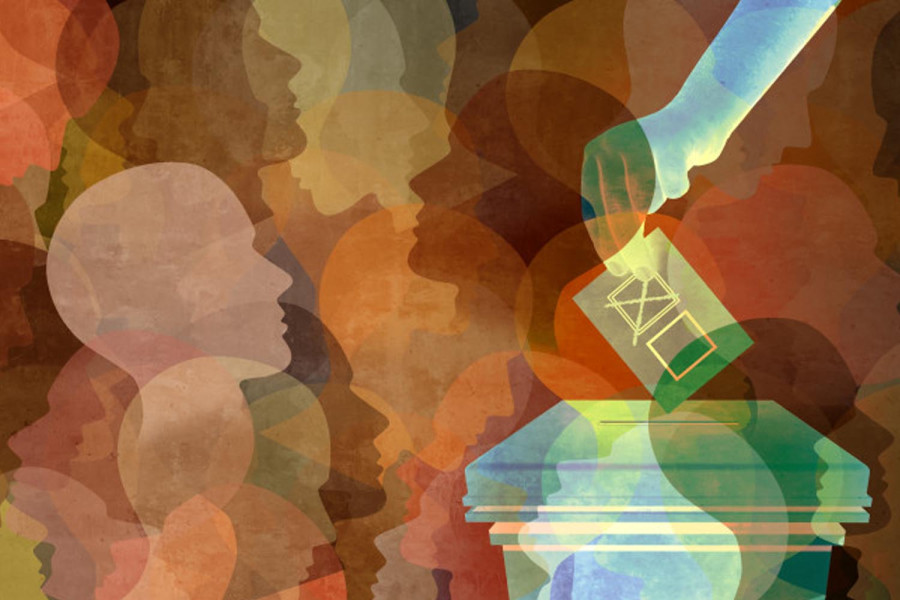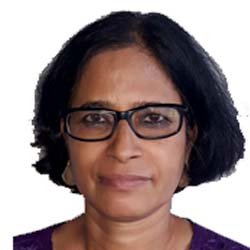Columns
South Asia’s turbulent electoral politics
Elections remain only way to political change despite political parties’ misgivings about ECs.
Smruti S Pattanaik
It is a season of elections in South Asia. Bangladesh and Bhutan are set to conduct their general elections this month, and Pakistan in February. India is expected to hold it in April and May; Sri Lanka, too, is expected to hold it this year.
The Maldives held two elections in September, after which the opposition coalition, Progressive Alliance, took over. Transition in all the countries every five years through an electoral process now appears to be entrenched even though the election process has remained flawed in some countries where the opposition has questioned the integrity of the electoral process. In Bangladesh, for instance, the main opposition, the Bangladesh Nationalist Party (BNP), rejects the electoral body mandated to conduct elections.
The tussle in Bangladesh
In Bangladesh, which is going to the polls on January 7, the Awami League is set to win for the fourth consecutive term. The BNP has boycotted the election, and many of its top leaders have been arrested on charges of violence and arson reportedly committed between 2013 and 2018. The party continued to press for a neutral caretaker government to conduct the election and insisted on the resignation of the incumbent government headed by Sheikh Hasina. It also accuses the present Election Commission of being partisan and has refused to participate in the election to create a legitimacy crisis for the incumbent government.
The election in Bangladesh has also drawn international attention. The United States and some Western countries have called for a “free and fair” election, and Dhaka continues to assure the global community of having an impartial election. Interestingly, these countries are silent on the reinstallation of a caretaker government that had conducted the elections in 1991, 1996 and 2001, which is the BNP’s main demand and ostensibly the reason for its non-participation. A military-backed caretaker government held the 2008 election. The Election Commission oversaw the 2014 and 2018 elections, which remain controversial.
Transition in Bhutan
Another recent entrant to democracy in South Asia is Bhutan, a constitutional monarchy. Elections in Bhutan are state-funded, with only two political parties receiving the highest and second-highest votes in the first round being allowed to contest the final round. Two newly built parties—the People’s Democratic Party and the Bhutan Tendrel Party—will fight the electoral battle in the second round scheduled for January 9, while the incumbent government is voted out after it could manage only the fourth largest votes.
Economic issues dominate Bhutan's political contest, which has a violence-free election. Bhutan, which is going for its fourth general election, has demonstrated political maturity in terms of democratic stability and peaceful democratic transition marked by less contentious politics.
Pakistan Army and political scene
Pakistan, which has adopted a caretaker government as a transitional government to conduct elections, is mired in controversy. Unlike Bangladesh, which had enumerated the selection procedure for the chief adviser of the caretaker regime, Pakistan’s caretaker system is based on consensus between the ruling and opposition parties in the name of caretaker Prime Minister Anwaar-ul-Haq Kakar. This regime is seen as backed by the powerful military establishment.
Several controversies mire the Pakistan general election, scheduled for February 8. Prior to the election, several controversial bills, including the Army Amendment Bill (that gave enormous power to the army to try civilians in the military courts), the Election Amendment Bill (that made disqualification not exceeding five years), the Official Secret Amendment Bill, the Electronics Media Amendment Bill and the Special Investment Facilitation Bill were adopted. Senate also moved a resolution that prescribed severe punishment, including disqualification for speaking against the armed forces of Pakistan.
The disqualification of Imran Khan, the former prime minister who was voted out of power through a no-confidence motion in April 2022, convicting him of corruption, has increased the winning chances of the Pakistan Muslim League-N.
Khan’s arrest led to a nationwide attack on military condonement and the Pakistan Army General Headquarters. This was probably the first such attack in the country’s history. Even after losing half of their country in 1971, the army had not faced such ignominy. Nearly 100 Pakistan Tehreek-e-Insaf (PTI) leaders and members of parliament left the party after this attack, even though the PTI condemned the violence and asked for a judicial investigation.
Judicial favouritism
Former Chief Justice Umar Ata Bandial was seen favouring Imran Khan in court when he said to him, “Good to see you”. Leaked audio tapes exposed this unholy alliance. He also ordered the Pakistan Democratic Movement government to hold assembly elections in two provinces—Punjab and Khyber Pakhtunkhwa—where the PTI held power, despite the government expressing its inability to do so. The tussle between the judiciary and the government led to several cases being heard suo motto and the government’s attempt to limit the judiciary’s discretionary powers. Though the parliament passed the Supreme Court Practice and Procedure Amendment Bill 2023, it was declared null and void by the Supreme Court. This brought to the fore the debate about whether the Parliament or the Judiciary is supreme in the matter of legislation.
After Bandial’s retirement, Chief Justice Qazi Faez Isa took over. Imran Khan was at loggerheads with Faiz Isa for his judgement against the Inter-Servcies Intelligence (ISI), especially Khan’s favourite Faiz Hamid, the ISI Chief, for orchestrating Faizabad dharna and distributing money to the people that drew the ire of Khan. Khan’s discord with the army started when he had a fallout with the former Army Chief, Qamar Javed Bajwa, over the appointment of the next army chief. Bajwa overruled Khan’s favourite and appointed Syed Asim Munir as the Chief of Army Staff. Khan continues to blame the ISI for his political fall.
Return of Nawaz
With the entry of the longest-serving former prime minister, Nawaz Sharif, who returned from exile in October after a green signal from the Army, the electoral contest is clear. Sharif, convicted in several cases and sentenced to life imprisonment for not being sadiq and ameen (righteous and honest) by the Supreme Court, has now filled out his nomination paper, and the same has been accepted. Many cases against him, including Avenfield and Al-Azizia, have been quashed by the higher courts for lack of evidence. Notably, most of these cases were politically motivated to see Sharif’s exit from politics. As the poll nears Pakistan’s political scene, it appears sealed, and it may see Sharif’s return. Meanwhile, the nomination papers of many of the leaders associated with the PTI have been rejected. Imran Khan’s nomination paper was rejected on “moral turpitude” after his conviction in the Toshakhana corruption case.
Imran Khan’s political life has now come full circle. After being propped by the Army in 2018 and his government referred to as the “selected” government, Imran Khan did not hesitate to challenge the power behind his throne. Cases against his political opponents were keenly pursued, and he followed the Army’s agenda to pursue cases against Sharif and his family to eliminate him from politics. Now, Sharif is back in Pakistan, and his party is preparing for the election. No one expects a free and fair election as the political parties continue to contest for the establishment’s blessings to form a government and remain in power.
Electoral politics in South Asia is still nascent. However, this is a work in progress, as unelected entities ruled many countries for a long time. Elections remain the only way to political change despite political parties expressing their reservation about the conduct of the Election Commissions, which oversee elections in all the countries of the region.




 8.75°C Kathmandu
8.75°C Kathmandu















